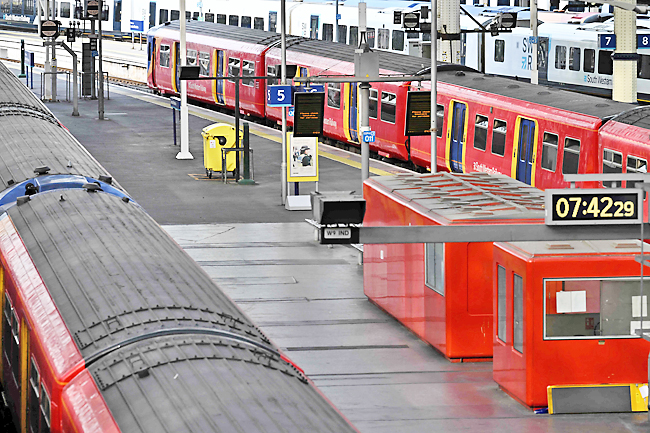LONDON (AFP) – Travel on Britain’s railway system ground to a near halt again on yesterday, amid the second of three days of widespread strike action this week billed as the biggest in decades.
Tens of thousands of rail workers staged the latest day-long walkout over pay and job security, plunging commutes into chaos and forcing many people to stay at home.
Only around a fifth of services are set to operate on heavily reduced hours, with those still running starting much later in the morning than usual and set to end as early as 6.30pm.
A third day of strikes is planned for tomorrow, with fears of further walkouts in the weeks to come.
With Britain suffering from rocketing inflation and stagnant economic growth, the industrial action – which could be mirrored by workers in other sectors over the summer – has echoes of the 1970s.

Then, the country was crippled by a wave of strikes across various industries while struggling with rampant price rises and non-existent growth, a toxic combination known as stagflation.
The RMT rail union insists this week’s actions are necessary as wages have failed to keep pace with inflation, which has hit a 40-year high and is on course to keep rising. It also wants a threat of compulsory redundancies withdrawn.
“The ultimate result is for us to receive some kind of a fair pay raise and assurances that our jobs are going to be secure for the near future,” striking rail worker Matthew Larkin told AFP from a picket line at a London station.
But railway bosses, backed by the government, argue the system costs far more to run than it generates in revenues and needs to modernise through greater flexibility over staff numbers as well as pay.







